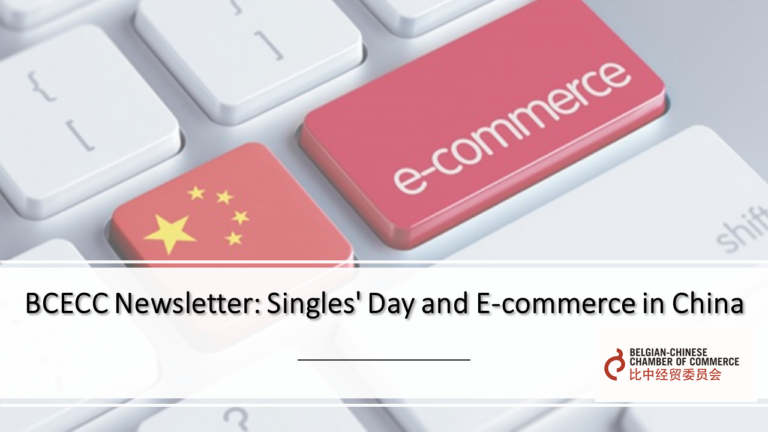November 11 will again be a day of intense online shopping in China. Alibaba’s shopping festival Singles’ Day, also called ‘Double Eleven’, originally started as a shopping festival to celebrate bachelors and single people in general, but has evolved into a commercial highlight. It is now the number one online and offline shopping day in the world, with astronomic sales numbers easily topping similar sales days in other countries. Each year, the shopping festival shatters all records, not only in sales, but also in the number of online payment transactions.
China is the largest e-commerce market in the world and is 3 times bigger than the second one, the United States. Unlike in any other country in the world, where many companies, big and small, operate their own independent webshops, in China most companies own a webshop on existing e-commerce platforms, such as Alibaba, Jingdong (JD) or many other big and small platforms. In fact, more than 70% of Chinese e-commerce transactions are conducted on two of the biggest platforms: Jingdong and Alibaba (the Alibaba platforms include Tmall, Tmall Global, Kaola and Taobao).
On Singles’ Day, many Chinese e-commerce websites and webshops launch massive marketing campaigns to attract young Chinese consumers, and many brands sell their products with a huge discount. It is expected that this year there will be 250,000 participating brands with 2 million new products and 800 million shoppers. Around 2,600 new foreign brands will participate for the first time. Unfortunately, only a handful of them are Belgian brands, which are mostly operated by their Chinese partners. Many brands however choose not to participate, but this comes with the risk of losing traction with their Chinese consumer base. Subsequently, for many brands November 11 is a double-edged sword.
This year, for the first time in 12 years, Alibaba already offered a sales period from November 1 to 3 ahead of November 11. This means there were two pre-sale periods, one from October 21 to October 30 and the other one from November 4 to November 10. It is a Covid-19 related change by Alibaba, providing more support for retailers that have been hit hard by the pandemic and an interesting opportunity for consumers to profit from even better deals.
Alibaba gives brands which apply on time the opportunity to use its e-commerce platforms to generate traffic and sales. Important to remember, however: platforms and brand websites should avoid encountering issues such as inventory shortages, crashed websites, supply chain and logistic problems that will damage the customer experience. To avoid all of these issues as much as possible, Singles’ Day promotions started on October 20 this year, so that all brands (and Alibaba) can make timely preparations. As Singles’ Day will be celebrated longer this year, the marketing strategy of retailers and brands needs to be well thought out, with a set of different tactics to influence the consumer.
Furthermore, brands and retailers are also offered more options this year, for example by e-commerce livestreaming and by using short videos to improve their content marketing.
Generally speaking, China’s economy has already recovered well from Covid-19 and is operating on a normal strength, with 4.9% GDP growth in the third quarter. E-commerce sales and consumer behavior also seem to have entirely recovered.
In order to set up your e-commerce platform the right way, you need the right technological expertise. Interested in knowing more about the technical support of events like Singles’ Day? Join us on 8 December 2020 for our webinar ‘A glance behind Alibaba’s Global Online Shopping Festival’.
Please contact the Belgian-Chinese Chamber of Commerce (BCECC) in case you need more information about Singles’ Day and E-commerce in China or for all your China business related questions.

